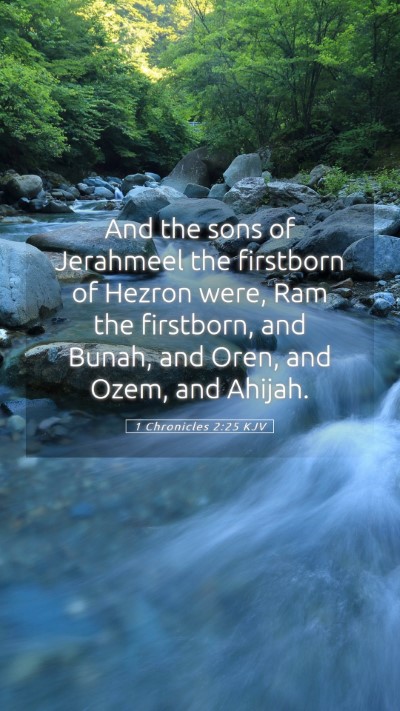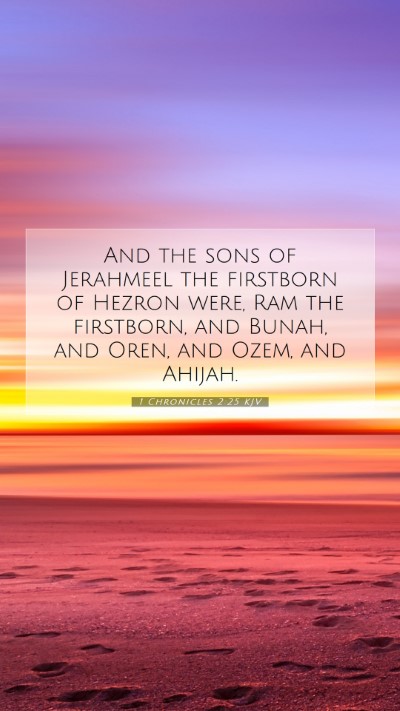Old Testament
Genesis Exodus Leviticus Numbers Deuteronomy Joshua Judges Ruth 1 Samuel 2 Samuel 1 Kings 2 Kings 1 Chronicles 2 Chronicles Ezra Nehemiah Esther Job Psalms Proverbs Ecclesiastes Song of Solomon Isaiah Jeremiah Lamentations Ezekiel Daniel Hosea Joel Amos Obadiah Jonah Micah Nahum Habakkuk Zephaniah Haggai Zechariah MalachiChapter
1 Chronicles 1 1 Chronicles 2 1 Chronicles 3 1 Chronicles 4 1 Chronicles 5 1 Chronicles 6 1 Chronicles 7 1 Chronicles 8 1 Chronicles 9 1 Chronicles 10 1 Chronicles 11 1 Chronicles 12 1 Chronicles 13 1 Chronicles 14 1 Chronicles 15 1 Chronicles 16 1 Chronicles 17 1 Chronicles 18 1 Chronicles 19 1 Chronicles 20 1 Chronicles 21 1 Chronicles 22 1 Chronicles 23 1 Chronicles 24 1 Chronicles 25 1 Chronicles 26 1 Chronicles 27 1 Chronicles 28 1 Chronicles 29Verse
1 Chronicles 2:1 1 Chronicles 2:2 1 Chronicles 2:3 1 Chronicles 2:4 1 Chronicles 2:5 1 Chronicles 2:6 1 Chronicles 2:7 1 Chronicles 2:8 1 Chronicles 2:9 1 Chronicles 2:10 1 Chronicles 2:11 1 Chronicles 2:12 1 Chronicles 2:13 1 Chronicles 2:14 1 Chronicles 2:15 1 Chronicles 2:16 1 Chronicles 2:17 1 Chronicles 2:18 1 Chronicles 2:19 1 Chronicles 2:20 1 Chronicles 2:21 1 Chronicles 2:22 1 Chronicles 2:23 1 Chronicles 2:24 1 Chronicles 2:25 1 Chronicles 2:26 1 Chronicles 2:27 1 Chronicles 2:28 1 Chronicles 2:29 1 Chronicles 2:30 1 Chronicles 2:31 1 Chronicles 2:32 1 Chronicles 2:33 1 Chronicles 2:34 1 Chronicles 2:35 1 Chronicles 2:36 1 Chronicles 2:37 1 Chronicles 2:38 1 Chronicles 2:39 1 Chronicles 2:40 1 Chronicles 2:41 1 Chronicles 2:42 1 Chronicles 2:43 1 Chronicles 2:44 1 Chronicles 2:45 1 Chronicles 2:46 1 Chronicles 2:47 1 Chronicles 2:48 1 Chronicles 2:49 1 Chronicles 2:50 1 Chronicles 2:51 1 Chronicles 2:52 1 Chronicles 2:53 1 Chronicles 2:54 1 Chronicles 2:55

